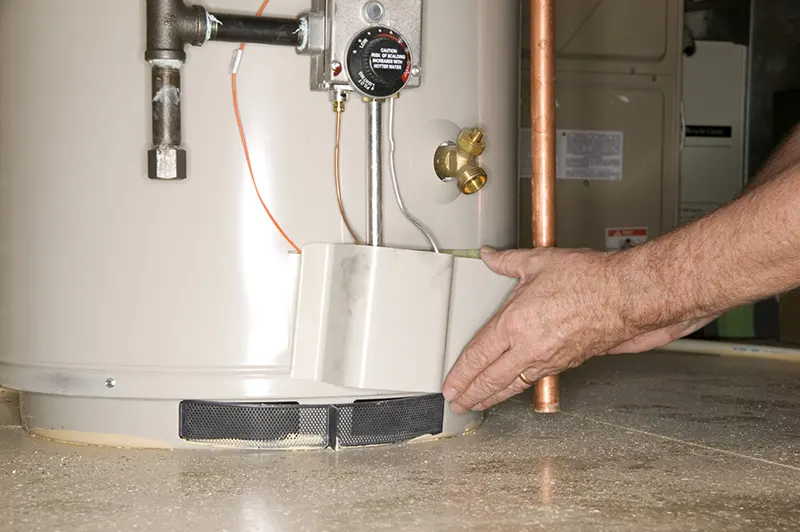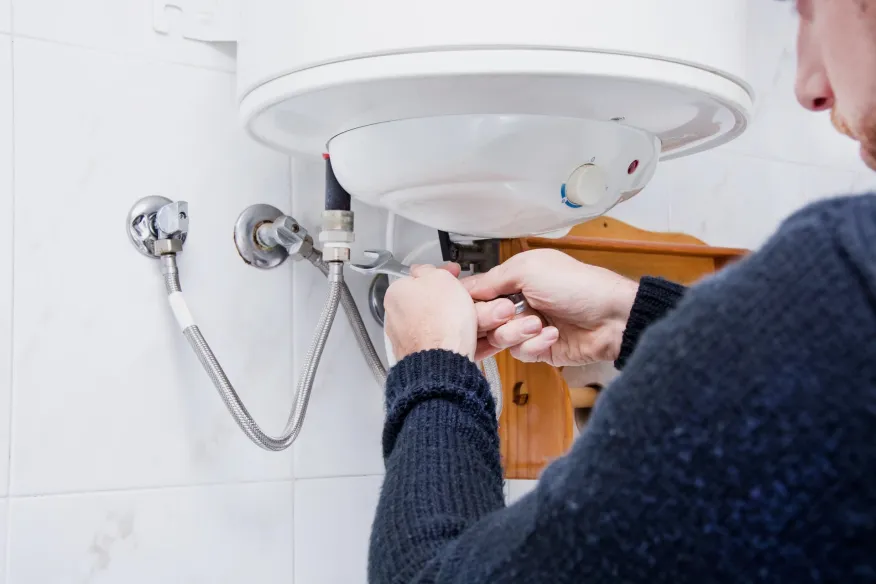Having a reliable and efficient hot water system in Orange is essential for everyday comfort and convenience. Whether it’s for morning showers, washing dishes, or laundry, hot water plays a key role in every household. However, many homeowners are often unsure about which system suits their needs best or how to maintain it properly once installed.
In Orange, where temperatures can drop significantly in winter, your hot water system must handle varying weather conditions efficiently. Understanding the different types of Hot Water Systems in Orange, the correct installation procedures, and effective maintenance practices can help you reduce energy costs, extend system lifespan, and ensure consistent performance throughout the year.
This guide explains everything you need to know about hot water systems — from types and installation tips to maintenance routines and energy-saving advice — so you can make informed decisions for your home without relying on guesswork.
Types of Hot Water Systems in Orange
First, let’s break down the main Hot Water Systems in Orange you might encounter. Each has pros and cons in our local context:
- Electric Storage Heaters: These are common (about 50% of Aussie homes use them). They store hot water in a tank and keep it ready. They’re cheap to buy and install, but running costs can be high – especially if you have peak electricity rates. In Orange’s mix of sun and cool nights, they’ll heat all night (possibly on off-peak power) to supply morning showers.
- Solar Hot Water Systems: These use rooftop panels (flat or tube collectors) to heat your water. They’re ideal in sunny Orange summers, but on cold, dull days you’ll need a backup heater (usually electric or gas booster) to finish the job.
Solar units are pricey up front, but government incentives (small-scale technology certificates or rebates) can cut the cost. If you’ve got roof space and love the idea of renewable energy, solar might be worth it. - Heat Pump Water Heaters: Think of these like a reverse air conditioner for your hot water. They extract heat from the air to warm the water, using about 30% of the power of a standard electric heater. In Orange’s mild climate they work well year-round, though extremely cold snaps can reduce efficiency and most models include an electric boost. They cost more upfront but run cheap, especially if you pair them with home solar panels.
- Gas Hot Water Systems: If your Orange home has mains gas, a gas hot water heater is worth considering. These units (often continuous-flow, i.e. instant hot water) heat on demand and can be cheaper to run than electricity. Outdoor installation is required for venting combustion fumes.
However, gas prices can be high and if gas lines aren’t an option, LPG bottles become costly. In cold weather, gas systems remain fairly reliable – but remember, gas is a fossil fuel, so think about long-term costs and carbon footprint.
Each system suits different needs. To figure out which hot water system in Orange is best for you, consider your household size (bigger families need larger tanks or higher flow rates), energy bills, and whether you’ve got solar panels or gas.
If you love DIY research, Australia’s energy experts note that the cheapest system to buy might cost more in the long run due to running costs. It’s also smart to check out the Australian Government’s YourEnergySavings or YourHome guides for comparisons and rebates.
Installing Hot Water Systems in Orange
Ready to install? Here’s how to do it like a pro:
- Plan Ahead: Before anything, check whether you need a permit from Orange City Council. In NSW, installing or replacing a hot water system usually requires notifying council or getting a plumbing permit, especially if you’re changing fuel type (e.g. electric to gas). It sounds like paperwork, but it keeps everything safe and legal.
- Hire a Licensed Plumber: In Australia, the law (AS/NZS 3500) demands that any hot water system installation be done by a licensed plumber. This ensures compliance with building codes (electrical, plumbing, gas and waterproofing rules) and protects your warranty. So, yes, calling a pro isn’t just smart – it’s required. They’ll handle all the tricky bits like gas fittings, electrical connections, and testing.
- Choose the Spot: Location matters. A big outdoor system (solar or heat pump) needs roof or yard space with good sun exposure and ventilation. A gas or electric storage tank must be near mains and water pipes. Insulate the outlet pipe right at installation if you can (heat tape or wrap) to cut heat loss. Make sure it’s an easy place to service later (you’ll thank yourself every time you do maintenance).
- Safety Devices: Every new system should have a temperature/pressure relief valve and a tempering (mixing) valve. The relief valve releases water if pressure gets too high. The tempering valve (if not built-in) blends cold water so tap-water maxes at 50 °C – this prevents scalds. Remember: by regulation, stored water is kept ≥60 °C to kill bacteria, but delivered water must be ≤50 °C.
- Electrical & Gas Work: If it’s electric, the plumber will wire it and ground it properly. For gas heaters, a licensed gasfitter must connect gas lines and ensure correct ventilation. Never ever try DIY wiring or gas work on a water heater – it’s a recipe for disaster.
- Final Checks: Once installed, your plumber should run a test: checking all pipes, valves, and the pilot light (for gas) or heating element (for electric). They’ll show you where the emergency shut-off is. Ask them what routine maintenance you should do and when to call them back for a service.
Key tip: Follow the manual. The manufacturer’s instructions often list specific steps and safety info. And always keep access panels and labels in place after installation.
By the way, installing Hot Water Systems in Orange might also unlock government rebates. For example, solar and heat pump systems can earn you Small-scale Technology Certificates (STCs), which plumbers often factor into the price. This is a boost to your wallet and helps the planet.
Maintaining Hot Water Systems in Orange
A well-maintained system runs smoothly for years. Here are maintenance pro-tips:
- Annual Inspections: Give your system an annual once-over (or call a technician). Check for any leaks around the tank and fittings, corrosion, or unusual noises. In Orange’s cool winters, also ensure frost cloth or insulation on the system (if outdoors) is intact. A little crack in insulation can lead to a cold shock!
- Flush the Tank: Sediment (mineral buildup) can accumulate in storage tanks. About once a year, drain a few litres of water from the bottom drain valve to flush out silt.
(To do this: turn off power/gas, attach a hose, and open the drain until water runs clear.)
This improves efficiency and stops rumbling noises. The U.S. Department of Energy even suggests flushing a small amount of water periodically to maintain efficiency and prevent sediment buildup. - Check Relief Valve: Every 6–12 months, lift the lever on the temperature/pressure (T&P) relief valve to make sure it flows freely and reseats properly. If water dribbles after testing, the valve might need replacing (it’s inexpensive but critical).
- Inspect the Anode Rod: If you have a tank-type heater, an anode rod (usually magnesium) protects the steel tank from rust. It slowly dissolves over time. Every 3–5 years, have it checked – if it’s mostly gone, replace it. This simple fix can extend your tank’s life by many years.
- Tempering Valve Testing: Once or twice a year, measure tap water temperature (especially in bathrooms) to confirm it’s not scalding hot. If it’s over ~50 °C, a mixing valve adjustment or replacement may be needed. This keeps the family safe from scalds.
- Keep It Clean: Dust off vents (for gas heaters) or filters (for heat pumps) yearly. Poor airflow can make a heat pump work overtime or even shut down. Also, ensure nothing is blocking sunlight to solar collectors (like leaves or new tree growth).
- Monitor Performance: Notice a dip in hot water volume? Or longer heating times? These are warning signs. Get professional help early, before bigger damage happens. For example, if your gas pilot light keeps going out, or your electric element cycles too often, call a plumber.
- Insulate and Save: As an extra step, wrap any exposed hot-water pipes with insulation sleeves. This is especially worthwhile in Orange, where nights can be chilly. It’s a quick DIY job that trims energy loss.
Remember, proactive maintenance not only keeps your showers hot, it can prevent costly breakdowns. In fact, regulations encourage annual checks because leaks or faults can lead to water damage or safety issues over time. Think of it as a health check-up for your home’s hot water heart.

Energy Efficiency and Savings
Keeping that hot water flowing shouldn’t break the bank. Here are some savvy tips for Orange residents:
- Use Off-Peak Power: If you have an electric storage heater, switching to an off-peak tariff means your system heats water when electricity is cheapest (overnight). You’ll still need enough tank capacity to last the day, but this can slash bills.
- Temperature Settings: Many systems have adjustable thermostats. For safety and savings, set storage to about 60°C – high enough to kill bacteria (like legionella) but no higher. Lowering from 70°C to 60°C can save energy and reduce scald risk.
- Shorter Showers & Low-Flow: A low-flow showerhead and shorter shower habits can cut hot water use dramatically. Less time under the hot tap means your system doesn’t work as hard. This is an easy change that saves $$ and water (important in NSW too).
- Solar Panels to the Rescue: If you have rooftop solar PV, point excess energy to your hot water (using a ‘solar diverter’ or a heat pump). This effectively gives you “free” hot water. The Clean Energy Regulator notes that pairing heat pumps or electric heaters with your solar can make them virtually emissions-free.
- Check for Rebates: As mentioned, NSW offers rebates and the federal STC scheme for eligible solar or heat pump systems. You might get a few thousand dollars off. There’s also sometimes a small rebate if you switch from an old electric system to a heat pump. Always ask your installer what incentives apply.
- Go Efficient: When it’s time to replace, look for high-efficiency models. For electric or gas tanks, search for better insulation (higher R-value). For gas, consider continuous-flow systems that only heat water on demand. The federal energy site notes that lowest-price heaters can cost more in the long run due to running costs.
By combining efficiency upgrades and smart usage habits, you can shave years off your hot water bills. And a side benefit: using less energy means fewer greenhouse emissions in line with local initiatives (like Orange’s push for renewables).
FAQs: Hot Water Systems in Orange
How long do hot water systems last?
Typically 10–15 years for storage tanks (electric or gas), though it depends on care and water quality. Heat pumps and solar tanks can also last a decade or more if well-maintained. Corrosion (from hard water) is the usual enemy.
Do I need to register my hot water system in Orange?
Unlike some states (Tasmania), NSW doesn’t require you to register ordinary residential water heaters. But you still need permits for installation and must follow building codes. Always hire licensed trades to keep things legal and safe.
How often should I flush my hot water tank?
For tank-based systems, aim to flush out a bit of water (to remove sediment) every 6–12 months. If your water is very hard, you might flush more often. Flushing keeps the heater efficient and quiet.
Is solar hot water worth it in Orange?
Orange has plenty of sunshine, so yes, a solar system can work well here, especially in spring/summer and shoulder seasons. Just remember that frosty winter nights mean you’ll rely on a booster (electric or gas) more often. Check for rebates – they help the cost-effectiveness.
What size tank do I need?
A rough guide: a family of 4 might need a 250–315 L tank if on off-peak power, or smaller (125–160 L) if running on-demand electric. Heat pumps often need 270–315 L for a 4-person home. Gas continuous-flow systems are rated by flow (e.g. 26–32 L/min for a family). Your plumber can do a load calculation based on your household habits.
Conclusion
There you have it – the full scoop on Hot Water Systems in Orange. From solar panels basking in our Central West sun, to the safety checks that keep your family scald-free, you’re now armed with practical know-how. Remember, the secret to installing and maintaining like a pro is planning ahead (know the regs), calling the right experts (licensed plumbers!), and keeping up with regular care.
Your home’s hot water system isn’t glamorous, but it’s utterly essential. Keep it running smoothly, and you’ll reward yourself with endless hot showers and lower bills. If this guide helped you feel more confident, share it with a mate who’s moving into Orange or tackling a heater upgrade.
And if you have more questions, local plumbers and the government energy sites (like YourEnergySavings) are good places to check. Stay cozy, stay safe – and enjoy that hot water!

